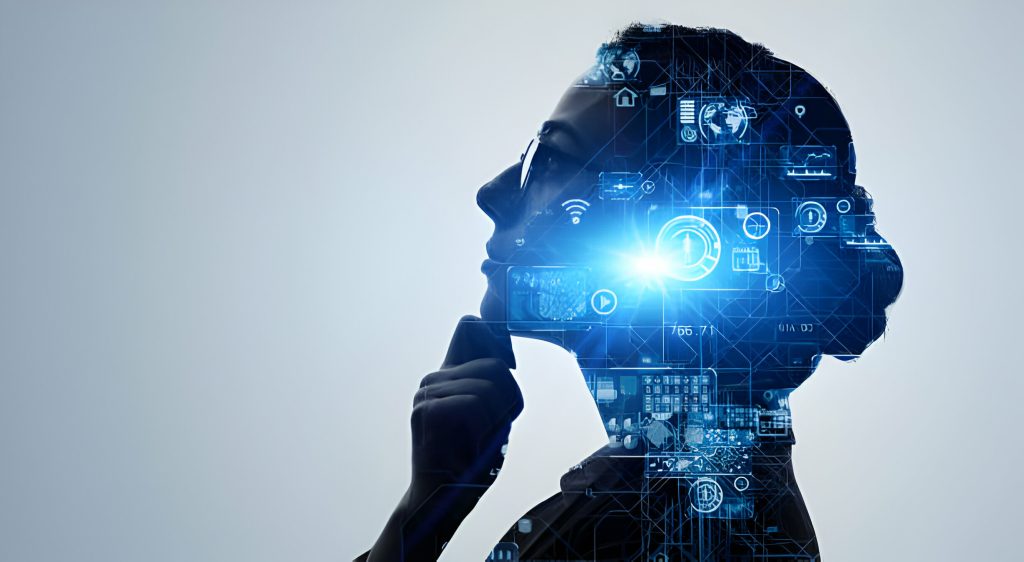With advancements in technology, AI has the potential to revolutionize our world. But what does this mean for you? Will AI replace your brain? In this article, we will dive into the risks and concerns of AI, its impact on the job market, and how it compares to human intelligence. Get ready to explore the limitations and potential of AI as we navigate this exciting yet uncertain future.
The Advancements and Impact of AI
AI has enormous potential to transform industries like healthcare, education, transportation, retail, communications, and agriculture. Advancements in AI have already started to revolutionize these sectors. In healthcare, AI is being used for diagnostic purposes, analyzing medical images and data to help doctors make more accurate diagnoses. In transportation, AI is powering self-driving cars and improving traffic management systems. In education, AI is being utilized for personalized learning experiences and adaptive tutoring programs. In retail, AI is enhancing customer experiences through chatbots and personalized recommendations. The applications of AI in these industries are improving efficiency, productivity, and the overall quality of services provided. As technology continues to advance, we can expect even greater advancements in AI across these sectors.
Ethical Considerations and Concerns Surrounding AI
Ethical concerns and considerations regarding the integration of artificial intelligence into various industries have become a topic of significant importance. As AI becomes more prevalent, it is crucial to address the potential risks and ethical implications associated with its use. Some key concerns include:
- AI biases: The programming of AI systems can lead to biased outcomes, perpetuating discrimination and inequality.
- Privacy concerns: AI’s reliance on data collection raises concerns about the privacy and security of personal information.
- Job displacement: The automation capabilities of AI may lead to job loss in certain industries, requiring proactive measures for retraining and upskilling.
- Ethical implications: AI’s lack of ethical judgment raises questions about its impact on human well-being and decision-making processes.
- Accountability and responsibility: Determining who is responsible for the actions and decisions made by AI systems poses a challenge.
Addressing these concerns requires careful regulation, transparency, and a focus on promoting fairness, accountability, and inclusivity in the development and deployment of AI technologies.
The Role of AI in the Job Market
In today’s job market, it is important to understand the role that AI plays in shaping employment opportunities and skill requirements. AI has the potential to automate repetitive tasks, leading to job displacement in certain industries. However, it also creates new job opportunities in the field of AI development and maintenance. This shift in the job market may require individuals to reskill and upskill themselves to adapt to these changes.
| Reskilling Needs | Job Displacement | New Opportunities |
|---|---|---|
| Updating skills | Automation of tasks | AI development |
| Learning new technologies | Changing skill requirements | Maintenance of AI systems |
Furthermore, the impact of AI on income distribution and societal dynamics cannot be ignored. It may lead to a shift in the distribution of wealth and income. While AI can enhance productivity and efficiency, it is crucial that measures are taken to ensure inclusive growth. Overall, understanding how AI influences the job market is essential for individuals and policymakers alike as they navigate this technological revolution.
AI Vs Human BrAIn: a Comparison of Capabilities
The comparison between AI and the human brain highlights the unique qualities and capabilities of each, suggesting the importance of collaboration rather than replacement.
- The human brain possesses remarkable learning capabilities that allow individuals to acquire knowledge through experiences and adapt to new situations.
- Humans excel in problem-solving efficiency by utilizing their memory, processing capabilities, and cognitive talents.
- The human brain’s adaptability and creativity enable individuals to adjust perspectives, multitask, and excel in various activities.
- Social and emotional intelligence in humans allows for effective communication, understanding emotions, and building relationships.
- On the other hand, AI systems demonstrate impressive learning abilities through exposure and practice.
- AI excels at certain specialized tasks such as image recognition and data analysis due to its exceptional processing power.
- AI’s decision-making process is based on acquired facts and can provide accurate results consistently.
Overall, while AI may surpass human capabilities in specific areas, it still lacks consciousness, self-awareness, intuition, social intelligence, creative thinking skills possessed by the human brain. Therefore, collaboration between humans’ unique qualities with AI technology could lead to more impactful advancements rather than replacing one with the other.
Responsible Development and Deployment of AI
Responsible development and deployment of AI require proactive measures to ensure fairness, privacy, and accountability. To address the concerns surrounding AI, regulations must be put in place to protect individuals’ privacy and data. The societal impact of AI cannot be ignored, as it has the potential to disrupt industries and displace jobs. Ensuring accountability and transparency in the development process is crucial to mitigate unintended consequences. To convey a deeper understanding of these concepts, let’s take a look at the following table:
| Measures for Responsible Development of AI | Benefits |
|---|---|
| Implementing AI regulations | Protects individual privacy |
| Addressing privacy concerns | Safeguards personal data |
| Considering societal impact | Minimizes job displacement |
| Promoting accountability and transparency | Mitigates unintended consequences |
The Future of AI and Human Collaboration
To fully embrace the future of AI and collaborate effectively, you must recognize the unique capabilities of both humans and AI systems. As technological advancements continue to shape our world, the future collaboration between humans and AI holds immense potential. Here is a glimpse into what this future might look like:
- Technological Advancements:
- AI systems will become more sophisticated, with improved cognitive capabilities and problem-solving abilities.
- Humans will leverage AI technology to augment their own skills and enhance productivity.
- Societal Impact:
- The integration of AI into various industries will revolutionize how we work, communicate, and solve complex problems.
- This collaboration has the potential to drive economic growth, improve healthcare outcomes, and address societal challenges.
- Ethical Implications:
- Responsible development and deployment of AI will be crucial in ensuring fairness, privacy, transparency, and accountability.
- Society must grapple with questions surrounding privacy rights, data protection, biases in algorithms, and job displacement.
Exploring the Limitations and Potential of AI
Exploring the limitations and potential of AI, it’s important to consider its impact on job markets and societal inequalities. Understanding the boundaries of AI capabilities is crucial in harnessing its power effectively. While AI has enormous potential, it also comes with limitations. Examining the ethical concerns surrounding AI development and use is essential to ensure responsible implementation. Analyzing the impact of AI on employment and job opportunities allows us to understand how it may affect different industries and workers. Comparing the strengths and limitations of AI and human cognition helps us navigate the unique qualities that each brings to the table. By acknowledging these factors, we can leverage AI’s transformative possibilities while addressing any potential negative consequences, fostering a future where humans work alongside intelligent systems rather than being replaced by them.
The Importance of Human Input in AI Systems
Don’t underestimate the significant role that your input and oversight play in ensuring the appropriate functioning of AI systems. Your involvement is crucial for the success and ethical implementation of AI technologies. Here’s why:
- The importance of human input in AI systems:
- Your expertise, knowledge, and values shape the development and decision-making processes of AI.
- Collaboration between humans and AI enhances the capabilities and outcomes of both.
- AI’s impact on decision making:
- Your insights and judgment are vital for evaluating and interpreting AI-generated results.
- Human oversight ensures accountability, fairness, and consideration of ethical implications.
- Enhancing AI efficiency through brain cells:
- Research shows that adjusting certain brain cells can enhance learning in both humans and AI systems.
- By understanding how our brains excel at learning, we can develop more advanced AI technologies.
The future of AI relies on a balance between human creativity, adaptability, and the capabilities of AI systems. Together, we can harness the power of technology while preserving our unique qualities as human beings.



